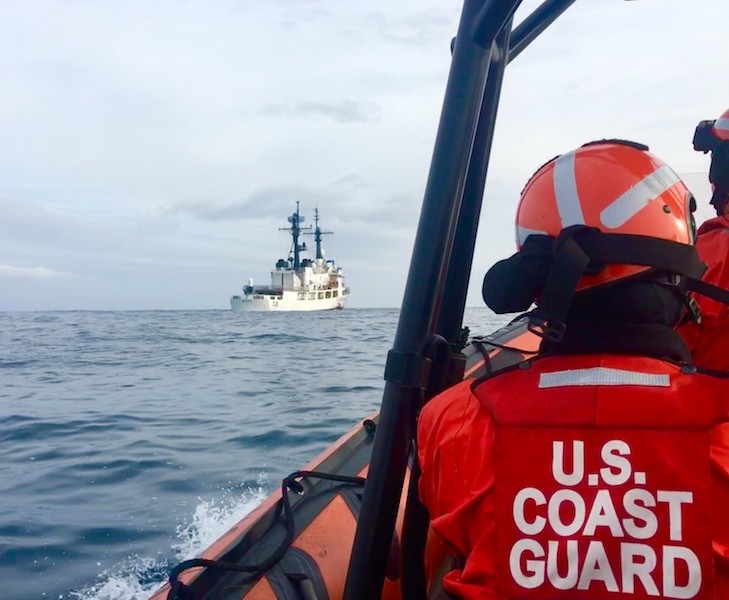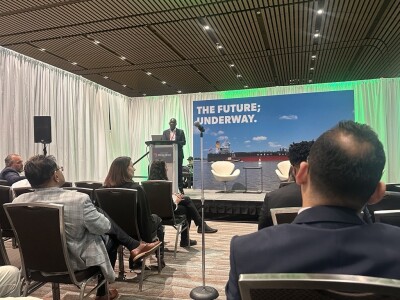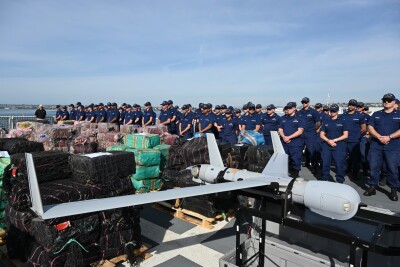Already stretched thin by a long list of responsibilities, the U.S. Coast Guard faces more challenges and expanding missions over the next decade due to climate change, new technologies such as autonomous marine systems, and global strategic competition particularly from China.
That are the findings made in a new government report released recently by the National Academy of Sciences (NAS).
Conducted at the request of Congress and authored by the NAS, the report identified 10 “specific and foreseeable developments” that will challenge the Coast Guard and identified 34 types of actions that the agency could take in response.
Challenges cited include development of autonomous marine systems, cybersecurity risks, commercial space flight operations, offshore wind energy, aquaculture, activities in the Arctic, decarbonization of the shipping industry, maritime disasters, migration, and illegal and unregulated fishing.
“Some of these developments present challenges already facing the Coast Guard but which will only grow in significance in coming years,” Cary Coglianese, a law professor at the University of Pennsylvania and lead author of the study told a recent congressional hearing. “Others represent new challenges that are only starting to become discernible.”
He said many of these challenges will likely overlap in how they play out. “Consider how a cybersecurity breach could lead an autonomous vessel to damage an offshore energy platform. It seems undeniable as the report notes that each of the 10 developments could produce incidents or phenomena that occur simultaneously or in quick succession.”
The Coast Guard currently has adequate authority to tackle all but two of the emerging challenges: the expanding use of fully autonomous uncrewed vessels operating in the maritime transportation system, and commercial space operations. The agency retains adequate authority to deal with cybersecurity in the maritime domain, although some tweaking of existing laws might be necessary, the report notes.
Even with existing authority, however, the Coast Guard will need sufficient mission support, such as better managing data, acquiring new technology and further developing its workforce.
On commercial space operations, the study notes that launches and re-entries in the maritime domain have more than doubled over the past five years. “The Coast Guard has already taken a host of regulatory actions to protect safety and security of waterways during periods of space operations,” the report said, “including establishing hundreds of safety zones at varying times every year.” But although the Coast Guard has authority over U.S.-flagged vessels, it lacks authority to impose binding safety orders on foreign-flagged vessels as space operations move further out to sea.
“This may impede the Coast Guard’s ability to protect both those vessels and commercial space flight operation in the exclusive economic zone.”
To address current and emerging challenges, the Coast Guard needs to boost its ability to analyze data, acquire need technology to do this and develop and maintain a workforce that is trained to meet these challenges. Congress can help by assuring that the agency has sufficient resources and needed statutory authorities, the study said.
Vice Commandant Adm Steven D. Poulin told lawmakers at a June hearing before the House Coast Guard and Maritime Transportation subcommittee that the Coast Guard is committed to working with relevant federal agencies and the Congress “to preserve the service’s existing authorities and secure any additional authorities needed to provide enduring value to the American public.”





